How Aziderm Cream Works
The key active component in Aziderm 20% Cream is azelaic acid, a naturally occurring dicarboxylic acid found in grains such as barley, wheat, and rye. When applied topically, azelaic acid works through several scientifically backed mechanisms:
- Anti-inflammatory Action: Azelaic acid reduces redness and swelling by inhibiting reactive oxygen species.
- Antibacterial Properties: It inhibits the growth of Propionibacterium acnes, the bacteria responsible for acne.
- Keratolytic Effect: It gently exfoliates the skin, unclogging pores and reducing the formation of comedones (blackheads and whiteheads).
- Melanin Inhibition: Azelaic acid interferes with melanin production, helping fade hyperpigmentation, dark spots, and melasma.
These actions collectively explain why aziderm cream for dark spots and aziderm cream for skin whitening is highly effective and well-tolerated across various skin types.
Indications, Uses & Dosage
What Conditions Does Aziderm 20% Cream Treat?
- Acne Vulgaris: One of the most common indications, it reduces inflammation and bacterial colonization.
- Post-Acne Hyperpigmentation: Helps fade leftover dark spots from healed acne.
- Melasma: Reduces facial discoloration by limiting excess melanin production.
- Rosacea: Controls redness and swelling.
- Uneven Skin Tone: Promotes a more balanced, radiant complexion.
Recommended Dosage and Application
Aziderm 20% Cream is typically applied twice daily—once in the morning and once at night—after thoroughly cleansing the skin. A thin layer should be gently spread over the affected area, avoiding the eyes, mouth, and broken skin.
A consistent skincare routine using aziderm 20 cream can show visible results within 4 to 8 weeks. However, consult a dermatologist to personalize usage based on your skin condition.
Aziderm Cream Benefits
The widespread use and growing popularity of Aziderm Cream are due to its wide-ranging benefits:
- Clearer Skin: Effective against blackheads, whiteheads, and inflamed pimples.
- Even Complexion: Fades spots and pigmentation without bleaching the skin.
- Gentle on Skin: Unlike harsh treatments, azelaic acid is non-irritating and suitable for sensitive skin.
- Anti-Aging Support: Reduces oxidative stress, potentially minimizing fine lines.
- Alternative to Harsh Products: A great substitute for individuals unable to tolerate products like The Ordinary Azelaic Acid due to sensitivity.
Whether you’re treating acne or seeking an even skin tone, aziderm cream benefits your skincare journey without compromising skin health.
Aziderm 20 Cream Ingredients
Understanding what’s inside the product is crucial for informed usage. The primary and supporting Aziderm 20 Cream ingredients include:
- Azelaic Acid (20%) – The star ingredient.
- Propylene Glycol – Moisturizing agent and stabilizer.
- Benzoic Acid – Preservative to prevent microbial growth.
- Cetearyl Octanoate – Emollient for skin hydration.
- Purified Water – Solvent for optimal application.
These ingredients work together to enhance the delivery of azelaic acid and provide a balanced, soothing effect on the skin.
Side Effects & Precautions
Common Side Effects
- Mild skin irritation
- Burning or tingling sensation
- Dryness or peeling (especially during early use)
These are usually temporary and resolve as your skin adjusts to the formulation.
Serious Side Effects (Rare)
- Severe allergic reactions (rash, itching, dizziness)
- Swelling of the face or lips
If any serious reactions occur, discontinue use and seek immediate medical advice.
Precautionary Guidelines
- Always do a patch test before starting full-face application.
- Avoid sun exposure or use sunscreen during the day.
- Consult your doctor if pregnant or breastfeeding.
- Do not apply on open wounds, mucous membranes, or around the eyes.
Frequently Asked Questions (FAQ)
Q1: Can Aziderm Cream be used for skin lightening?
A: Yes, aziderm cream for skin whitening works by reducing melanin production, thereby evening out skin tone without bleaching.
Q2: Is Aziderm Cream safe for long-term use?
A: Under medical supervision, it can be used long-term. However, periodic evaluation is advised to monitor progress.
Q3: What makes Aziderm different from The Ordinary Azelaic Acid?
A: Both contain azelaic acid, but Aziderm 20 Cream has a higher concentration and prescription-grade formulation tailored for medical dermatological conditions.
Q4: Can I apply Aziderm with other active ingredients like retinol?
A: Use caution when combining with other actives. Space them out or alternate days to avoid irritation.
Q5: How long does it take to see results?
A: Most users see improvement in acne and pigmentation within 4-8 weeks of consistent application.
Conclusion
Aziderm 20 Cream offers a science-backed, dermatologist-approved solution for a range of skin concerns—from acne to pigmentation. Powered by azelaic acid, it is an effective and gentle treatment that aligns well with diverse skin types and tones. Whether you’re dealing with breakouts, looking to fade dark spots, or improve skin clarity, Aziderm Cream can be your trusted companion on the journey to healthier skin.



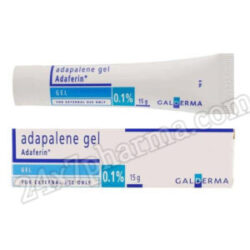
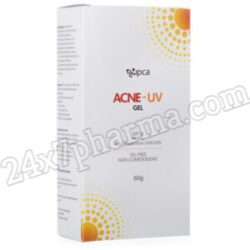
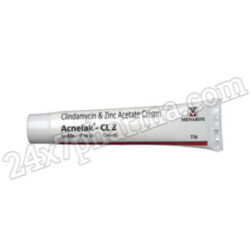
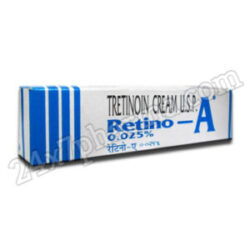
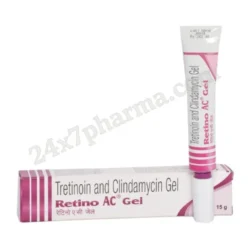
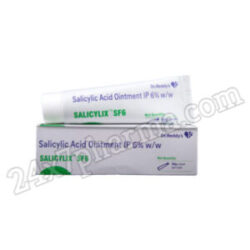
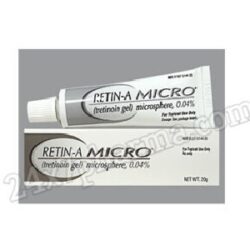
Reviews
Clear filtersThere are no reviews yet.